Do you need a digital detox September, National Depression and Mental Health Screening Month, is the perfect time to reevaluate your digital technology habits. Today, the average adult spends more than 12 hours a day in front of a computer or phone screen. In fact, more than three in ten report they are online almost constantly, and young people spend more than six hours a day on their phone.1 Now, new research suggests that constant connectivity is negatively impacting mental health.
Digital Addiction and Dopamine
Rising rates of anxiety and depression may be the result of excess dopamine, a neurotransmitter associated with pleasure.2 While mindlessly scrolling through social media, texting, shopping online, or playing video games may be pleasurable and relaxing, the activity releases dopamine in your body and creates a technology addiction, commonly referred to as Internet Addiction Disorder (IAD). When this feel-good chemical is released, the brain attempts to create homeostasis by reducing the number of dopamine receptors that are stimulated. This process explains why pleasure is often followed by a letdown. Returning to the source of pleasure alleviates the letdown, however, it also alters the brain’s threshold for pleasure. Addictions such as smoking, alcoholism, and gambling follow a similar physiological cycle.
Smartphones: The Modern-Day Hypodermic Needle
According to Dr. Anna Lembke, chief of Stanford University’s dual diagnosis addiction clinic and author of Dopamine Nation, the instant gratification that comes from digital immersion means we are living in the emotion-focused limbic brain versus the problem-solving pre-frontal cortex. Digital distractions help us escape life’s complex problems, so we are losing our capacity to delay gratification, solve problems, and deal with life’s normal frustrations. Lembke calls the smartphone the modern-day hypodermic needle that we turn to for quick hits, distraction, and validation, and she asserts that we are now all addicts. Unfortunately, these addictions are leading to unprecedented unhappiness and anxiety.
Time for a Digital Detox
Lembke recommends a digital detox to kick the habit. This includes a fasting period of 24 hours to up to a month to reset the brain, followed by a resumption in moderate connectivity. Allowing the mind time to rest contributes to improved synchronicity of the brain and a general sense of wellness. Here are additional tips for overcoming a digital addiction:
- Reward yourself when you abstain from digital content to give your brain the euphoric boost it craves
- Disable smartphone notifications
- Log out of digital platforms you regularly visit so they are not as easily accessible
- Create a list of things to accomplish during your idle time
- Unplug at least one hour before bed and keep your phone in another room while sleeping
- Access emails only during set business hours
This month, take time for your mental health. Take nature walks, play outdoor sports, spend time with friends, and most importantly, close your laptop and put down your cell phone. Learning how to use technology intentionally can lead to improved mental health.
Authored by Zach Meeker, Research Assistant for Midwest Orthopaedics at Rush University Medical Center
1 Perrin, A. and Atske, S. (2021) Pew Research
2 Lembke, Anna (2021). Digital Addictions Are Drowning Us in Dopamine. The Wall Street Journal. August 13, 2021.
Click here for full podcast playlist.













